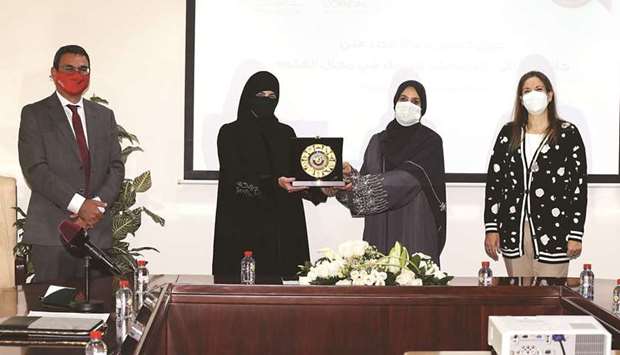Qatar has won the L’Oréal-Unesco Award for 2020 which is presented for distinguished women in the field of science.
The award was presented to Dr Isra Marei, post-doctoral associate in pharmacology at Weill Cornell Medicine-Qatar (WCM-Q). She was recognised for her research towards the development of 3D vascular drug screening platforms based on cord blood endothelial progenitor cells.
Speaking during a press conference held yesterday on the occasion, Secretary-General of Qatar National Commission for Education, Culture and Science Dr Hamda Hassan al-Sulaiti said that receiving the L’Oréal-Unesco Award came within the framework of the joint efforts, co-operation and partnership between WCM-Q and the Unesco, with the aim of benefiting from the capabilities of the international organisation in supporting and strengthening the national capacities, and preparing Qatari cadres capable of managing development projects in the next stage.
The award also is one of the internationally recognised initiatives to support and encourage female STEM graduates, and one of the few selected programmes in the Middle East that has created an important platform that helps women succeed and highlight their achievements in the scientific fields.
For her part, Director of the Unesco Regional Office in Doha Dr Anna Paolini congratulated Dr Marei for winning the the L’Oréal-Unesco for Women in Science Middle East Regional Young Talents Programme.
She noted that the biggest challenge for women is not the pursuit of excellence in the fields of science, but the pursuit of equal opportunities for leadership and career development, which is very important if the global community wanted to achieve the sustainable development agenda by 2030.
Dr Marei extended thanks and gratitude to Qatar National Commission for Education, Culture and Science and L’Oréal-Unesco for giving her this great opportunity, noting that the Women in Science Middle East Regional Young Talents Programme is an initiative that aims at supporting Arab women scientists from the countries of the Gulf Co-operation Council, contributing to the advancement of scientific research, and highlighting the role of Arab women in the development of science.

The award was presented to Dr Isra Marei, post-doctoral associate in pharmacology at Weill Cornell Medicine-Qatar (WCM-Q).
